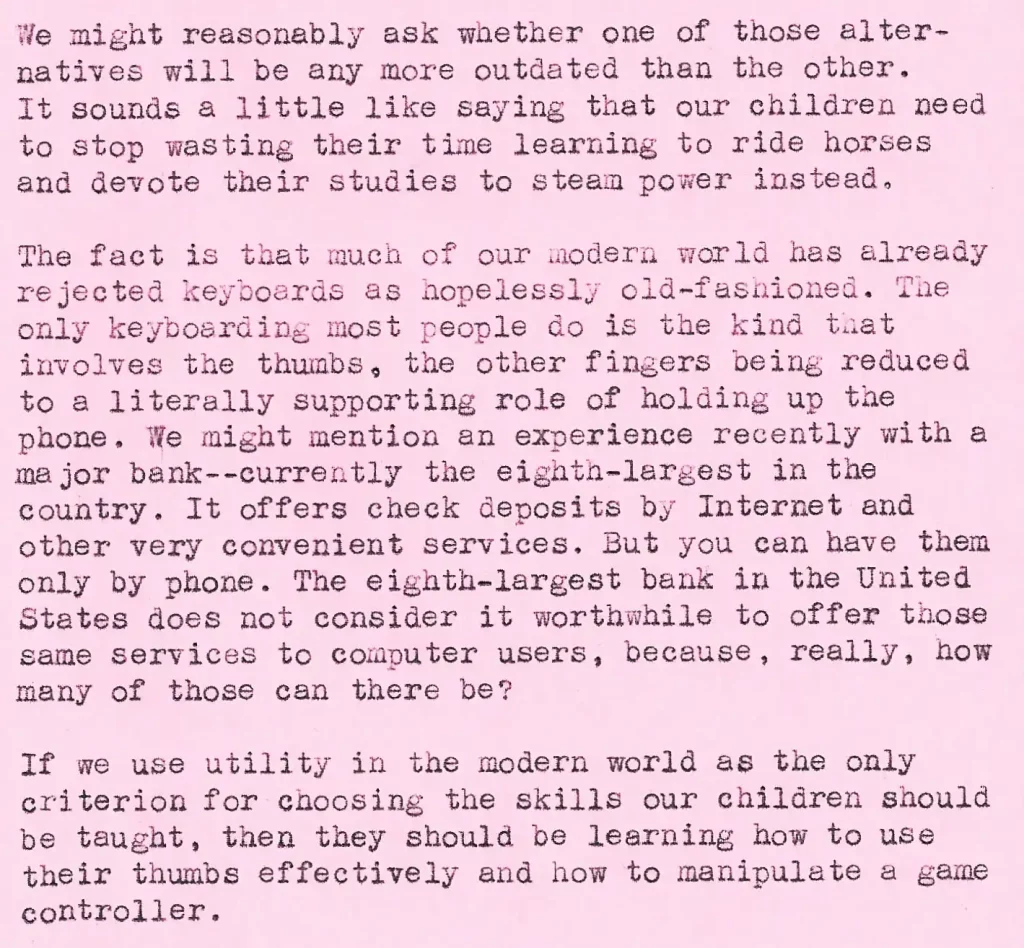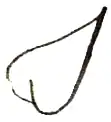



The typewriter is the Woodstock. Readers may be interested in this clip in which Groucho and Zeppo Marx demonstrate the unreliability of dictation to a human secretary.
The graphic comes from a booklet published by IBM in 1943. You can have it adapted as an SVG file if you like.
Transcribed below.
When we were talking about the question of teaching cursive in schools, we mentioned that the anti-cursive faction insists that there is no place for cursive because our children need to learn keyboarding.
It betrays an interesting prejudice, doesn’t it? The word “keyboarding” is merely an attempt to find a substitute for “typing” that doesn’t sound quite so archaically mechanical. But typing is what they mean, whatever device the keyboard may be attached to.
In other words, what they are telling us is this: in the world of tomorrow, the world our children will have to live in, cursive handwriting will be out of date, because everybody will communicate by typing.
We might reasonably ask whether one of those alter- natives will be any more outdated than the other. It sounds a little like saying that our children need to stop wasting their time learning to ride horses and devote their studies to steam power instead.
The fact is that much of our modern world has already rejected keyboards as hopelessly old-fashioned. The only keyboarding most people do is the kind that involves the thumbs, the other fingers being reduced to a literally supporting role of holding up the phone. We might mention an experience recently with a major bank–currently the eighth-largest in the country. It offers check deposits by Internet and other very convenient services. But you can have them only by phone. The eighth-largest bank in the United States does not consider it worthwhile to offer those same services to computer users, because, really, how many of those can there be?
If we use utility in the modern world as the only criterion for choosing the skills our children should be taught, then they should be learning how to use their thumbs effectively and how to manipulate a game controller.
Even those skills may be quaintly old-fashioned by the time today’s elementary-school children are adults. It is easier now than it was five years ago to produce acceptable text by dictation, and our computer secretaries keep getting better. They may already be better at listening to us than other human beings are, but other human beings are often too embarrassed to tell us even when they know they have not heard us properly, and unless they are actually employed as secretaries taking dictation they seldom leave a trail of evidence showing how thoroughly they have muddled what we were trying to tell them.
Furthermore, why will the adults of tomorrow write at all? Artificial-intelligence assistants will step in to write what they would have said if they had been as articulate as an artificial-intelligence assistant.
So it looks as though keyboarding, as a skill, may be as archaic as cursive handwriting. Or as playing a musical instrument, which after all is not necessary in our age of digital recordings and increasingly lifelike synthesizers (and increasingly robot-like human voices fed through pitch-correction software). But there are some skills that are good to have because they make us more human, not because they make us more useful servants to corporate masters. Perhaps, after all, it ought to be the mission of schools to teach those, and let the corporate masters spend their own money on training capable drudges.

Leave a Reply